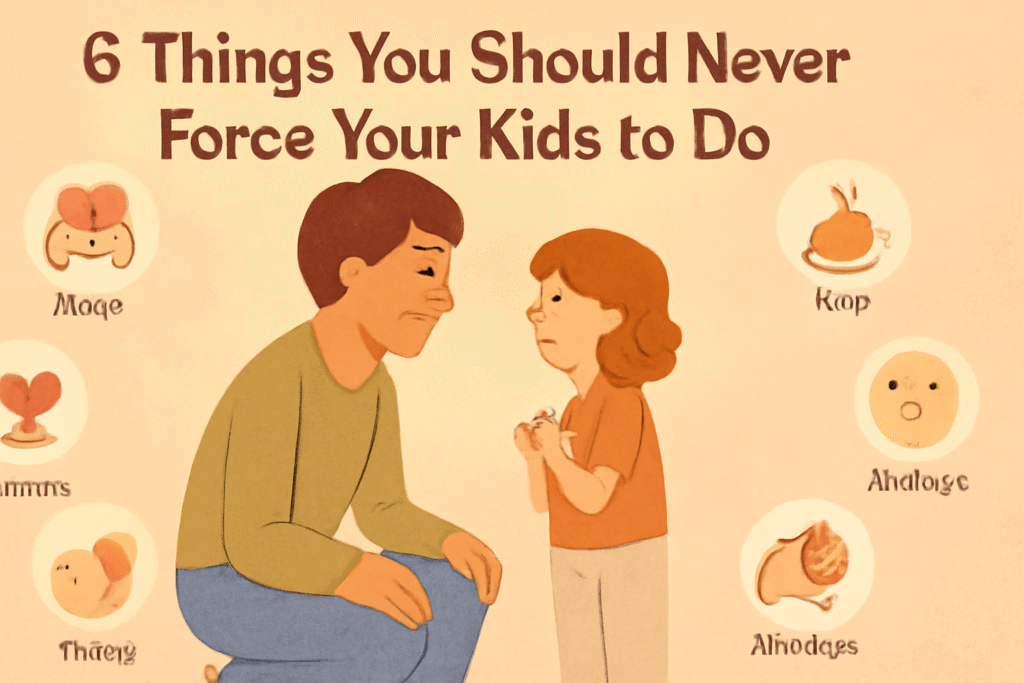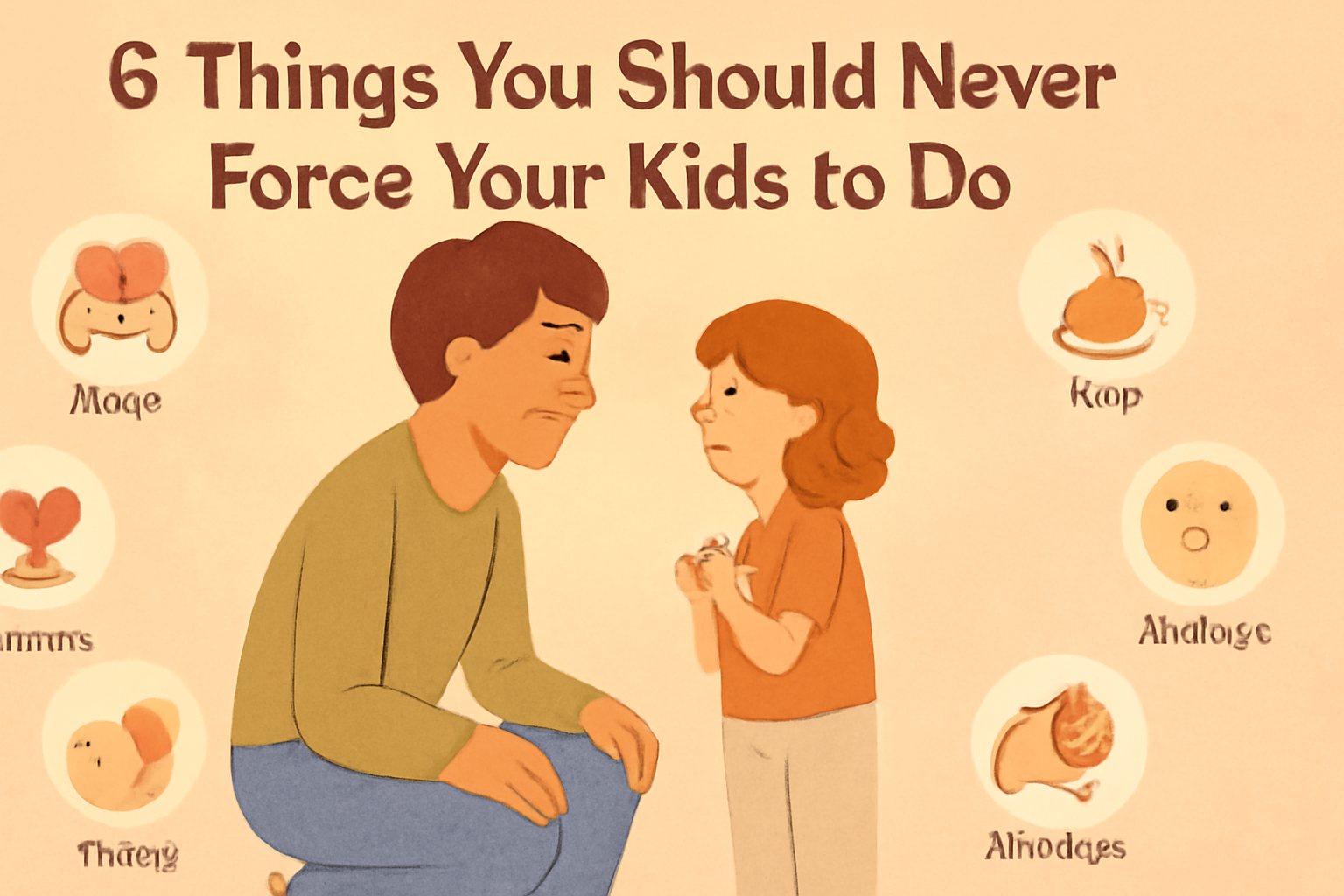Avoid these 6 common parenting traps—forcing hugs, meals, chores—and foster autonomy, empathy, and confidence in your child instead.
🤝 6 Things You Should Never Force Your Kids to Do (And What to Do Instead)
Parenting isn’t about control—it’s about guidance. While structure is essential, forcing children into actions can breed resentment, hurt self-esteem, and erode trust. Here are six common traps parents fall into—and gentle alternatives for each:

1. Forcing Hugs or Kisses
It may feel polite to insist children show affection, but pushing physical closeness teaches them their feelings don’t matter.
✅ Instead: Teach consent early. Use phrases like, “You can give a hug if you want.”
2. Apologizing on Cue
Saying “sorry” should come from understanding, not pressure. Forced apologies don’t build empathy.
✅ Instead: Explain why their action may have hurt someone and give them time to reflect.
3. Making Them Finish Food They Hate
Forcing kids to eat everything often leads to aversion and power struggles.
✅ Instead: Serve small portions and offer new foods repeatedly in a pressure-free way.
4. Sticking with a Job or Activity They Dislike
Pushing kids to continue activities they dislike can harm their self-esteem and curiosity.
✅ Instead: Show support and encourage exploring new interests until they find a genuine passion.
5. Compelling Sharing When They’re Unready
Teaching sharing is important, but insisting a child gives up something before they’re ready breeds resentment.
✅ Instead: Model generosity and explain the value of sharing, then let them choose when to share.
6. Suppressing Their Emotions
Telling kids to “stop crying” or “toughen up” silences their feelings and teaches emotional shame.
✅ Instead: Validate their emotions: “I see you’re upset—let’s talk about it.” Help them label and manage their feelings.
💡 Why This Matters
Forcing behaviors limits autonomy and erodes trust. Instead, teaching consent, emotional awareness, and respect builds confident, empathetic, and resilient children.

